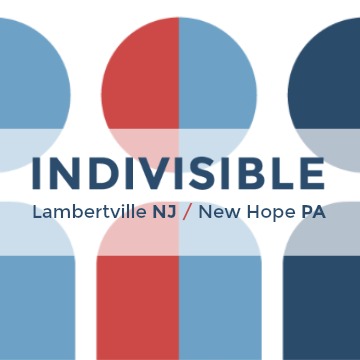Environmental Group: ILNH Environmental Action Group joined 150+ groups to Stop Environmental Racism & Fight for Environmental Justice calling the assembly to pass S232/A2212 by July 30, 2020. See below:
Dear Members of the NJ State Assembly,
It is long known that communities of color and low-income neighborhoods often bear the greatest burden of pollution and COVID has only exacerbated the problem. This impacts our physical and economic health, quality of life, and ability to thrive, learn, and work.
Unfortunately, the NJ Department of Environmental Protection (DEP) currently does not have a policy in place directing it to review pollution permit applications based on the cumulative impacts of toxic air from polluting facilities in a neighborhood.
That’s why it’s so important a strong cumulative impacts bill (S232/A2212, Singleton-Weinberg- Ruiz+2/McKeon-Vainieri Huttle-Timberlake+13) passes committee today and the full Assembly on July 30th. This bill has already passed the Senate and has the strong support of Governor Murphy, Senator Booker, the NJ Urban Mayors Association, Lt. Governor Oliver, and DEP Commissioner McCabe.
The bill is up in the Assembly Environment this afternoon and gives the DEP the authority under reasonable circumstances to reduce cumulative disproportionate pollution impacts in already overburdened communities. It is a needed first step in correcting a legacy of environmental racism and injustice by expanding the rights of residents to weigh in on decisions, reducing disproportionate pollution burdens, promoting clean businesses over toxic industries, and making New Jersey a leader in the fight for environmental justice. For more information on the bill, see the attached FAQ.
This bill is long overdue. We urge you to do everything in your power, not just voting for but speaking up, to ensure a bill that not only stops future environmental injustice but also begins to reduce existing disproportionate and unfair pollution burdens. Help us get the strongest bill possible on the Governor’s desk by July 30th.
The importance of passing this legislation into law could not be greater as the federal government works to roll back protections. We need our state to step up, be courageous and honor the legacy of John Lewis, civil rights leader and congressman, who passed away this weekend.
To discuss this further please contact: Dr. Ana Baptista, 973-342-6056, baptista@newschool.edu;
Kim Gaddy, 973-420-7925, kgaddy@cleanwater.org;
Maria Lopez-Nunez, 201-978-6660, mlopeznunez@ironboundcc.org; and/or
Dr. Nicky Sheats, 609-558-4987, newbian8@verizon.net.
Let’s not just say Black Lives Matter, let’s mean it, justice delayed is justice denied.
Civil Rights: The ILNH Civil Rights Action Group is calling for support for NJ Bill S2519/A4235.
This bill requires public health emergency credits to be awarded to certain inmates during a public health emergency declared by the Governor in order to provide remission of time from their sentences. The COVID-19 death rate of inmates in New Jersey is the highest in the country. While the State of New Jersey has been severely impacted by the COVID-19 pandemic, inmates in this State have been afflicted at a particularly alarming rate, as the inability of inmates to quarantine or practice social distancing creates a higher risk to their lives. In providing a method to award these credits, it is the sponsor’s intent to expedite the release of certain inmates who are approaching the end of their sentences in order to reduce the risk of harm to inmates and correctional facility staff, while simultaneously protecting the public safety. This bill provides for public health emergency credits to be awarded to certain inmates in the event a public health emergency is declared by the Governor that arises as a result of a communicable or infectious disease, and results in the modification of correctional facility operations. Under the bill, public health emergency credits are to be awarded to any inmate in the custody of the Department of Corrections who is serving a sentence or receiving jail credits applicable to the sentence. The credits would provide further remission from both the maximum and minimum term of the inmate’s sentence at the rate of six months for each month, or portion of each month, served during the declared emergency with a maximum of 12 months of remission to be awarded for any declared emergency period. The award of public health emergency credits is not to limit or affect an inmate’s eligibility for parole consideration. Public health emergency credits are not to be awarded under the bill to an inmate who has been deemed a repetitive, compulsive sex offender. The bill also provides that juvenile offenders, other than those deemed to be repetitive, compulsive sex offenders, are eligible to receive public health emergency credits. The bill further provides that these juveniles are eligible to receive other credits provided under current law. More resources can be found at https://www.njcaic.org/decarceratecovid19
NJ CAIC
#DecarcerateCOVID19 Public Health Credit S2519/ A4235 — NJ CAIC
We stand for humanity and ask our legislators to stand in solidarity and Support S2519/ A4235 to #DecarcerateCOVID19 and #SayTheirNames



